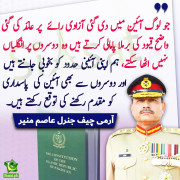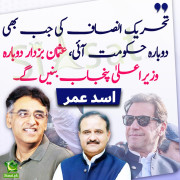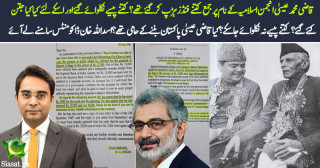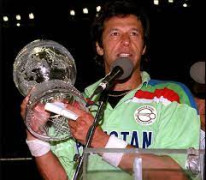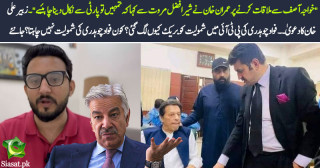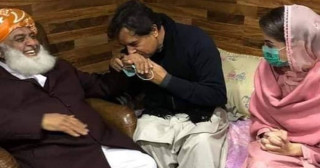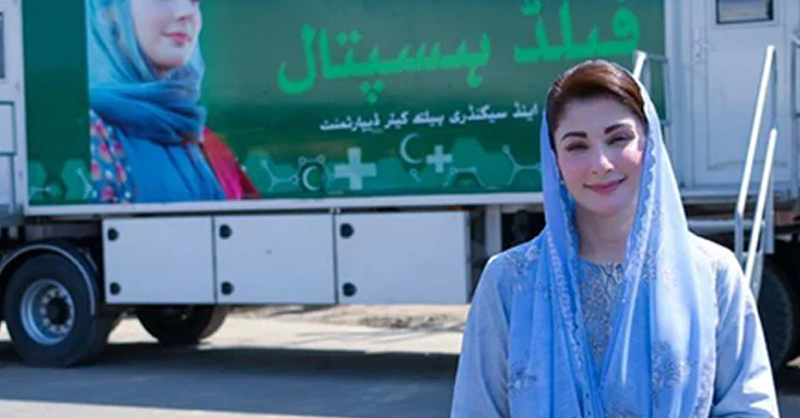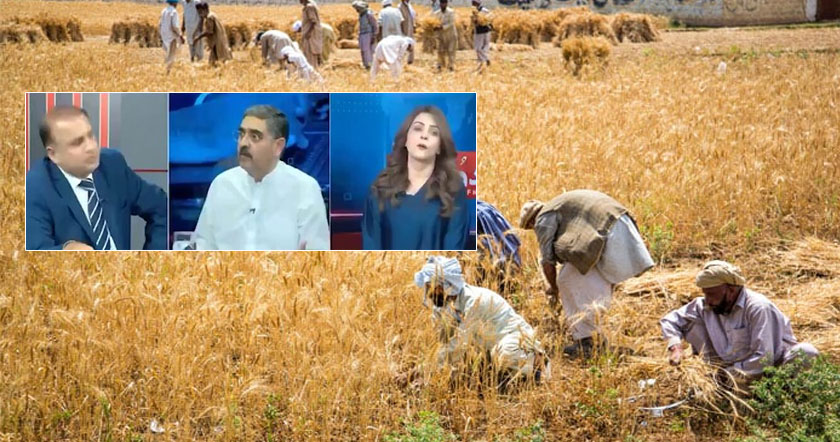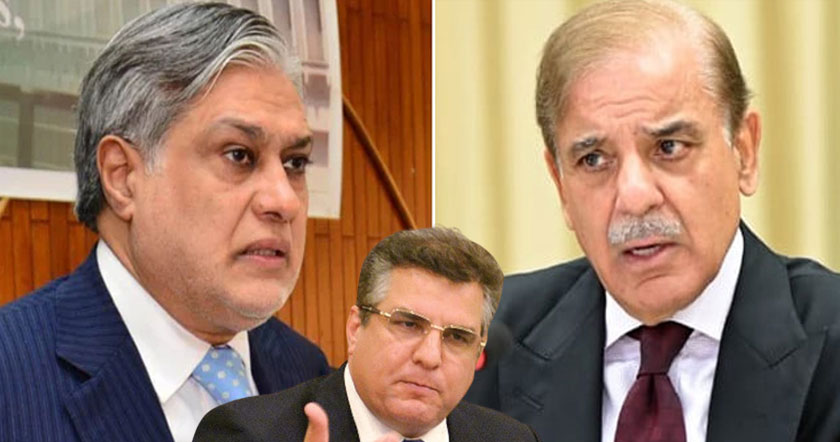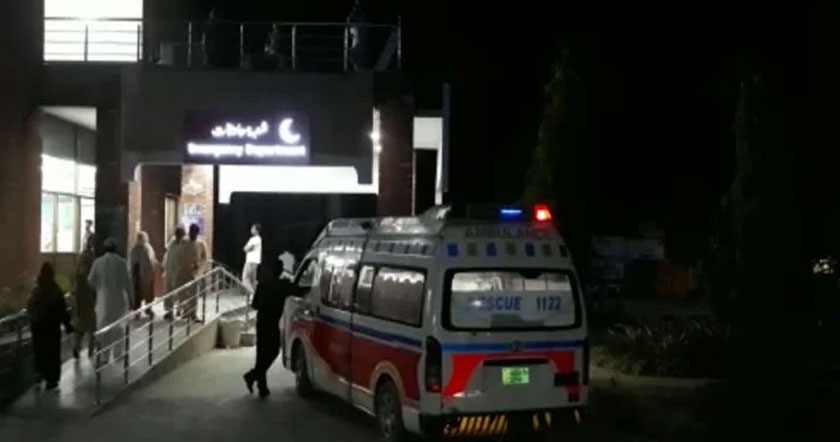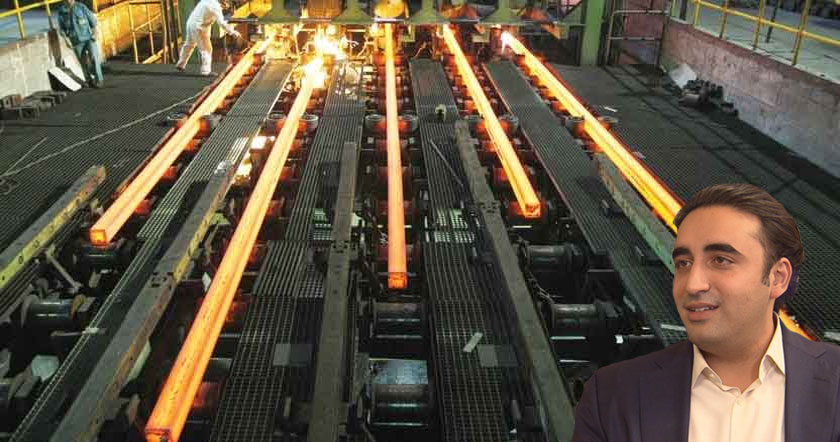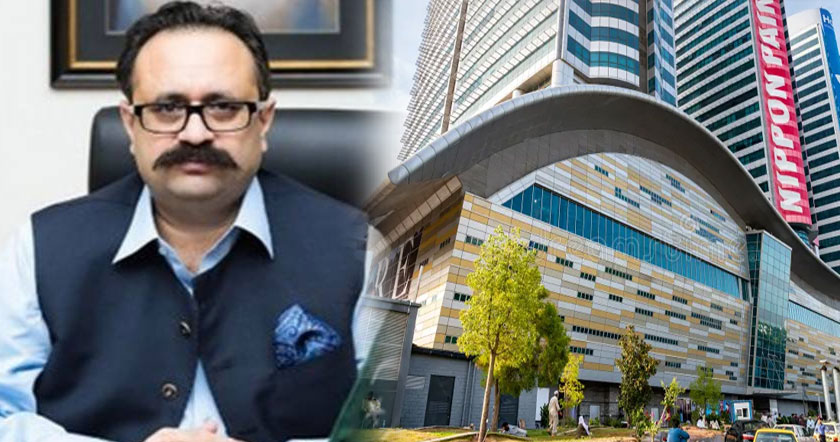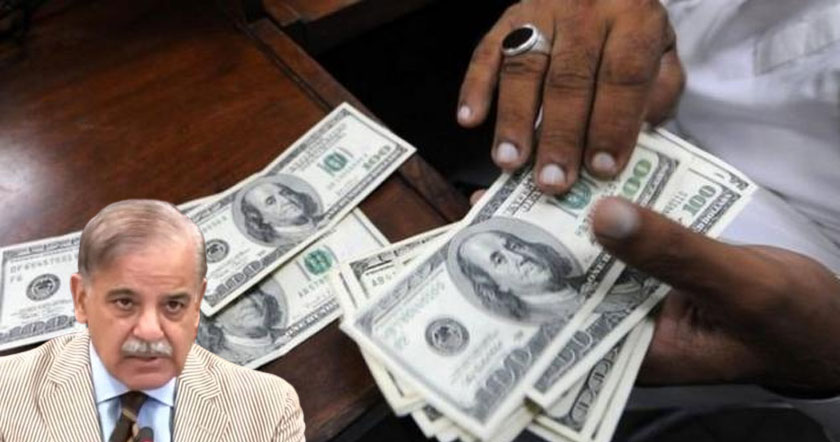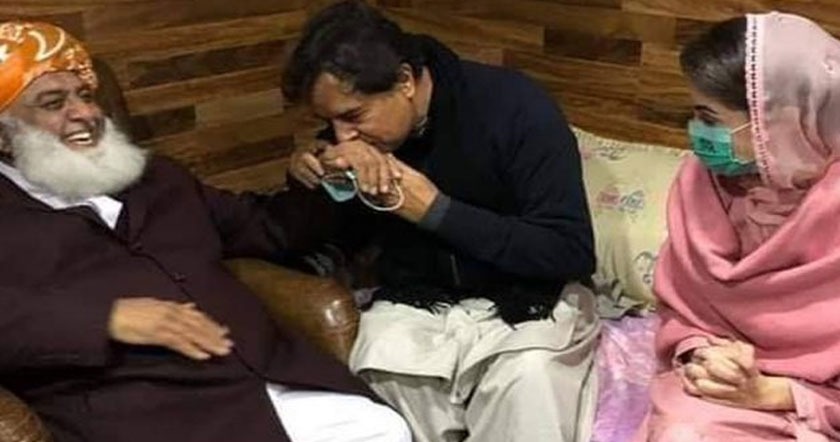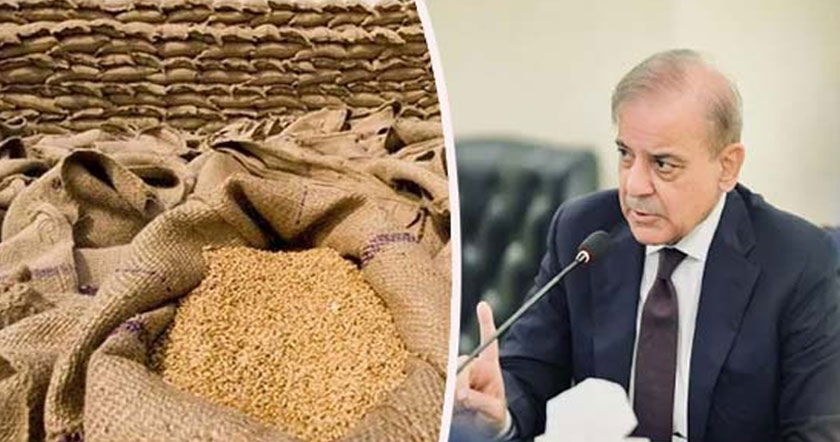obtained from: http://sachaylog.blogspot.com/2011/04/who-is-behind-karachi-killings.html
Portrait of a Don
By Ghulam Hasnain (Monthly Newsline Magazine, Sept 2001 edition. Karachi)
original link: http://www.newsline.com.pk/NewsSept2001/coverstory2.htm

"To win the loyalty of a person is the most difficult task in the world," Dawood Ibrahim, 46, would tell his brother gangsters. This former street urchin and son of a Mumbai police constable seems to have managed to earn it manifold. Hated by many, Dawood's employees and associates adore him, and would go to any length for him, including murder.
People who have worked for this Mumbai underworld don, known as the 'Gold Man,' maintain he never abandons his men. He is also unfailingly courteous and unstintingly generous. "If you are having dinner with him, he will make sure he starts after everyone else. If you ask him for money, he will never question how much you want. He hands out a substantial sum and if you ask how much of it you can keep, he says, 'It's all yours, take whatever you want.'" But Dawood does not brook fools either, or those who disobey him. And those who betray him usually do so at the cost of their lives.
Ibrahim lives like a king. Home is a palatial house spread over 6,000 square yds, boasting a pool, tennis courts, snooker room and a private, hi-tech gym. He wears designer clothes, drives top of the line Mercedes' and luxurious four-wheel drives, sports a half-a-million rupee Patek Phillipe wristwatch, and showers money on starlets and prostitutes. He bought Lahore model, Saba, with whom he reportedly had a passionate involvement, a house and a car. Nor does he shirk his obligations: Mandakini, of Ram Teri ***** Maili fame, former Bollywood actress with whom he had a child is reportedly still being supported by him.
If in the mood, he engages in a game of cricket or snooker with friends. And as the sun sets, Dawood and his party set off for any one of his 'safe houses' in Karachi for an evening of revelry - usually comprising drinks (Black Label is his preference), mujras and gambling. The long-married Dawood's passion for women has made him a favoured client for local pimps. His current liaison notwithstanding, he whets his allegedly large sexual appetite with a variety of women.
"He prefers virgins, preferably young girls. And he is a good paymaster. If the market rate for a woman is 10,000 rupees, Dawood pays 100,000 rupees. He is thus always surrounded by Pakistan's top call girls," discloses one of his family friends.
Carousing through the night, Dawood and his companions quit only at dawn and collectively offer fajr prayers. This has been Dawood Ibrahim's routine for several years.
Initially operating independently, Dawood formed his own gang, which grew into a mega crime network over the years. Both Hindus and Muslims worked for him, pursuing his by now multiple business interests, which included drugs, mediating in business disputes, evicting tenants from old buildings and clearing land for purposes of construction.
Ibrahim's interests soon led him to Bollywood where he became a major film financier. At his lavish parties, there was never a shortage of the mega stars of the day. "They wouldn't dare refuse an invitation," says a friend, who maintains that those who opted out on account of shooting schedules would suddenly find their dates had been cancelled or postponed.
Growing Hindu-Muslim tension, fuelled by other underworld dons, which climaxed after the Babri mosque demolition, changed everything. The ensuing blasts in Mumbai, and the communal riots triggered by the underworld itself, caused the Dawood Ibrahim gang to splinter. One of his top lieutenants, Chota Rajan, often described by Ibrahim as one of his 'nauratans,' (nine jewels) defected and formed his own group consisting mainly of Hindu boys. Thereafter, Ibrahim was accused of masterminding the blasts, even though he was out of town at the time. He could never return to India. Dubai, which might have been a natural alternative residence, was ruled out because of an Interpol alert for Dawood's arrest - the UAE and India have an extradition treaty.
Thus Dawood fled to Pakistan, managing also to subsequently smuggle his family, comprising his wife, four daughters and a son, and certain close associates and their families out of Mumbai. (One daughter, 12, subsequently died of malaria and is buried in Pakistan). Today they are all Pakistani passport holders.
For the Muslims of Mumbai, Dawood's role in the blasts makes him a hero. "You cannot imagine the behaviour of the Hindus towards us before the blasts. They would hurl insults at our veiled women, ridicule us and mock our beards. The blasts changed everything. Now they cannot underestimate our strength; they are afraid of us," said a shopkeeper from Dawood Ibrahim's old mohalla on Mohammad Ali Road, a largely Muslim neighbourhood, whose residents shun the press and fiercely guard their privacy.
In Pakistan meanwhile, Dawood managed to establish another huge empire, comprising both legitimate and illegitimate businesses. In fact, the last few years have witnessed Dawood emerge as the don of Karachi.
Dawood and his men have made heavy investments in prime properties in Karachi and Islamabad, and are major players in the Karachi bourse and in the parallel credit system business - hundi. Dawood is also said to have rescued Pakistan's Central Bank which was in crisis at one point, by providing a huge dollar loan. His businesses include gold and drug smuggling. The gang is also allegedly heavily involved in match-fixing. Dawood's influence among the Pakistani cricket players is so well known that a senior Pakistan cricket official met Dawood to get the names of those Pakistani cricketers involved in betting.
Some of the Pakistani cricket players admit that at one time or another, they have sought Dawood's help, financial or otherwise. Javed Miandad is allegedly very close to Dawood Ibrahim, and his recent stint in cricket, despite the opposition from other players, was reportedly at Dawood's behest.
Dawood's sphere of influence has also encompassed the business community, with businessmen increasingly approaching Dawood to settle their financial disputes with other businessmen or for financial bailouts. Some former MQM militants are apparently also working for Dawood as trouble-shooters. However, Dawood's growing influence has irked Karachi's powerful ethnic group, the mohajirs, who feel Dawood is trespassing on their domain as more and more people are now looking to Dawood to sort out their problems. "Earlier, whether it was a case of financial dispute or the construction or regularisation of an illegal building, people came to us for help. Now all of them are going to Dawood," remarked a former leader of Altaf Hussain's MQM.
Dawood's business activities are not confined to the subcontinent. His network extends to several countries of the African continent, and to Malaysia, Singapore, Thailand, Sri Lanka, Nepal, Dubai, Germany, France and UK. His net worth has been estimated at close to 30 billion rupees.
Meanwhile, not only have the Pakistani authorities turned a blind eye to the gang's activities within Pakistan, but many in the corridors of power have partaken of Dawood's hospitality. Dawood often throws lavish mujras for Pakistani politicians and bureaucrats. A recent guest was a former caretaker Prime Minister.
These are not the only members of the establishment who have close ties with Dawood. He is said to have the protection of assorted intelligence agencies. In fact, Dawood and his men move around the city guarded by heavy escorts of armed men in civvies believed to be personnel of a top Pakistani security agency.
A number of government undercover agents, who came into contact with Dawood because of their official duties, are now, in fact, working for him. "A major serves him a glass of water. Nearly all the men who surround him for security reasons are either retired or serving officers,"claims an MQM activist. "And he keeps them happy - buying them expensive apartments and showering them with favours. So they are more loyal to Dawood than the government of Pakistan."
Why is he allowed to operate with such impunity?
According to informed sources, Dawood is Pakistan's number one espionage operative. His men in Mumbai help him get whatever information he needs for Pakistan. Rumour has it that sometimes his men in Karachi accompany Pakistani intelligence agents to the airports to scan arriving passengers and identify RAW agents. Both Dawood and his lieutenant Chota Shakeel, who have international satellite telephones and mobile roaming facilities, are in constant touch with their people in India and are allegedly able to garner valuable information for local agencies.
But Dawood has not severed all ties with India - or even with Hindu nationalists.
Dawood and his men might claim to be the champions of the Indian Muslims, but he continues to have close business ties with the Hindu mafia. One of his close associates claims that Dawood even has joint business interests with the son of the Hindu nationalist Shiv Sena leader, Bal Thackeray, public pronouncements of fierce enmity between the two notwithstanding.
There is evidence to indicate that Dawood is also still financing Bollywood films. Early this year, the Mumbai police arrested Bharat Shah, the producer of the Indian film Chori Chori Chupke Chupke, after proving that the film was financed by Dawood Ibrahim. And there is nostalgia for the home left behind. Dawood is said to often cry for Mumbai.
"Mumbai was Mumbai. There we had everything, here one cannot have the life or the fun we did in India," said one of Dawood's associates.
Karachis Gang Wars
by Ghulam Hasnain (Newsline, Sept 2001)
original link: http://www.newsline.com.pk/NewsSept2001/coverstory1.htm
It was the normal afternoon traffic rush on the Malir road. As a prison van slowed down before the Malir Bridge, several armed men who were lying in wait on both sides of the bridge, showered it with a hail of Kalashnikov bullets. The shooting was so intense that none of the 10 policemen who were escorting underworld gangster, Shoaib Khan aka Shoaib Rummy walla, back to prison got a chance to even fire back. The lightning attack left four policemen dead, while Karachi's top gambling den operator, Shoaib Khan, two pedestrians and four other policemen received multiple bullet wounds. Their mission accomplished, the attackers left unhurriedly in waiting cars watched by horrified motorists. A few hours later, the police found the abandoned vehicles in nearby villages.
Senior police officials believe the attack was carried out by the Haji Ibrahim Bholoo group. Bholoo, Shoaib's former business partner, has been missing since January this year and Shoaib is being held responsible for Ibrahim Bholoo's disappearance and possible murder.
Karachi's two rival underworld gangs, both working for the notorious Mumbai don, Dawood Ibrahim, are now settling their scores on the streets of Karachi. Dawood Ibrahim and his team, Mumbai's notorious underworld clan including his righthand man Chota Shakeel and Jamal Memon, are on India's most wanted list for a series of bomb blasts in Mumbai and other criminal activites. After the 1993 Mumbai bomb blasts, the gang have made Karachi their new home and base of operations. Living under fake names and IDs, and provided protection by government agencies, they have built up their underworld empire in Karachi employing local talent like Shoaib and Bholoo.
Both Shoaib Khan and Ibrahim Bholoo started their careers from the slums of Karachi, a perfect environment for any wannabe gangster. Within a few years their underworld activities took them and their families from the slums to palatial houses in Karachi's Defence Housing Authority. The two small-time gangsters struck gold when they got in touch with the notorious Dawood Ibrahim, five or six years ago and started working for him in Karachi. From petty crimes they moved into the realm of big-time underworld operations and contract killings in Karachi and abroad.
Shoaib Khan ran a number of gambling dens in Karachi, a line he was familiar with, as his father Akhtar Ali Khan, was a satta operator and gambler in Liaquatabad. Even though Shoaib is now in custody, his gambling dens continue to operate in the city, with the biggest gambling den located in the Hockey Stadium. In the mid '90s Shoaib started a gambling den in Dubai. It was in Dubai that Shoaib made contact with Dawood through their mutual passion for gambling. Both men became friends and Shoaib took over Dawood's extortion operation in Karachi. Then in 1998, Shoaib allegedly murdered a Pakistani businessman, Irfan Goga, who had won a lot of money gambling in Shoaib's den in Dubai. Irfan's body was never recovered but his abandoned car was found in the parking lot in Dubai airport. Goga's family accused Shoaib of the murder, but before warrants could be issued, Shoaib fled to Pakistan.
Dawood also knew Irfan and reportedly when he questioned Shoaib about the killing, he told Dawood that he killed Irfan because he had been abusing Dawood, something Shoaib found impossible to accept. Shoaib soon acquired a reputation for not honouring his financial commitments both in his gambling operations and otherwise.
Haji Ibrahim, alias Bholoo, was a People's Party worker and a good friend of Najeeb Ahmed, a top PSF activist, as well as other Peoples Party activists. In the early '90s he left for South Africa, where he amassed a small fortune in drugs, hawala and smuggling. Then he met Shoaib in Dubai and became his business partner. Dawood Ibrahim too had extensive drug operations in South Africa. So it was inevitable that Bholoo joined hands with Dawood Ibrahim, serving as his agent in South Africa.
Bholoo was a known contract killer. His name shot into the limelight when the mutilated body of Karachi's top bookie, Hanif Kodvavi alias Hanif Cadbury, was found in Johannesberg in 1999. Hanif had fled to South Africa after a dispute with Dawood over the payment of 800 million rupees of bet money, which Dawood apparently lost in the Sharjah Cup matches. Though Dawood and his men deny they have anything to do with Hanif Cadbury or his murder, Ibrahim Bholoo's name has been associated with carrying out the contract killing of Hanif Cadbury in South Africa for Dawood Ibrahim.
Hostilities between Bholoo and Shoaib surfaced last year, when Shoaib asked Bholoo to arrange hit men to eliminate Dawood Ibrahim's arch enemy, Chota Rajan. Till the Mumbai blasts, Chota Rajan was Dawood's right hand man. After the blasts, however, he defected and formed his own group, and ganged up with RAW to hit the business interests of his former Godfather.
Insiders claim that Bholoo, who in the past had carried out a number of contract killings for Dawood Ibrahim, immediately arranged for three activists of the now defunct Al-Zulfikar organisation to eliminate Chota Rajan. The three who were wanted in several criminal cases in Pakistan, were assured of protection and a generous pay-off if they carried out the hit on Rajan. The team of assassins from Pakistan, backed by some former Pakistani undercover agents, left for Bangkok to trace and eliminate Dawood's top foe. The Pakistani hit team succeeded in tracking down Chota Rajan who was then staying in the apartment of one of his trusted friends in a fashionable Bangkok district.
The team attacked in a style similar to blockbuster Indian movies. Armed with automatic weapons and wearing ties and jackets the hit team reached the upmarket apartment building carrying a cake, giving the impression to the security at the gate that they had come to celebrate Rajan's birthday. The hit team burst into the apartment and against the underworld rule of never killing women and children, fired at the wife of Rajan's top hitman, Rohit Verma. When she tried to save her husband, both Rohit and his wife were killed. Rajan locked himself in the bathroom but was injured when the team sprayed the door with bullets. Rajan managed to slip out of the bathroom window, and hid himself in a nearby garbage dump till the police came to his rescue. He later slipped out from a Bangkok hospital after bribing the police officers who had been deputed to guard him and disappeared.
When the team returned to Karachi, Shoaib antagonised Bholoo by refusing to honour his commitment to pay the three Al-Zulfikar assassins their fee. Bholoo, who could not refuse to pay his former party comrades, paid them from his own pocket.
On January 8, Ibrahim Bholoo, visited the Defence residence of Shoaib Khan to settle another monetary dispute involving 700,000 dollars and was never seen again. Senior police officers suspect that Bholoo is already dead, though they have yet to find his remains.
Since then, the Bholoo group have been gunning for Shoaib who, moving under heavy security, consistently managed to escape the Bholoo boys. Two controversial Karachi police officials, SHO Anwar Khan and Chaudhry Aslam, have also allegedly joined the Bholoo group, to help them get Shoaib. While in South Africa, Bholoo was a key informant for the Karachi police on the activities of MQM activists taking refuge in South Africa. He was constantly feeding information to SHO Anwar Khan and Chaudhry Aslam, who were in the forefront of the army crackdown against the MQM. "When Bholoo disappeared, we thought it was our moral and ethical responsibility to help out his family," said Anwar Khan.
Bholoo's family had several meetings with Dawood Ibrahim to seek his help in convincing Shoaib to divulge Bholoo's whereabouts.
Shoaib, who still had the support of Dawood Ibrahim, continued to escape arrest. Then on February 21, 2001, the situation changed. There was a shooting incident on the premises of the City Courts, where armed guards from the two rival groups exchanged fire. Shoaib, who had applied for a temporary bail before arrest warrant in Bholoo's kidnapping case from Sukkur, had come to the court to get his bail confirmed. He was escorted by ranger personnel and several armed men. Bholoo's men were waiting.
Both the rangers as well as Shoaib's armed guards fired at Bholoo's supporters, who they feared might force Shoaib's arrest after lawyers told Shoaib that his bail may not be confirmed. The seven ranger personnel led by Major Abdul Majeed of Janbaz Force in Thatta and Major Tariq Hameed of Karachi, are now facing a court martial. They were reported to be regular visitors at mujra performances at Shoaib's den. On the day of the shooting at the City Court, the team of rangers apparently left their headquarters on some pretext to accompany Shoaib for his protection.
The incident forced the government to finally intervene and undercover agents approached Dawood and asked him to stop backing Shoaib. It worked and on June 14, Shoaib surrendered himself to the authorities. "Dawood was told that Karachi was not Mumbai. We told him to stop supporting Shoaib because he had killed an innocent man," said an inside source.
So far Karachi was infamous for ethnic and sectarian killing. But the arrival of underworld mega-bucks has brought a new dimension to the city's crime profile as warring gangs fight pitched battles on Karachi's streets. With Dawood Ibrahim operating out of Karachi, with the apparent blessings of the government, the Shoaib incident might well be the first of a series of Mumbai-style mafia wars.
Portrait of a Don
By Ghulam Hasnain (Monthly Newsline Magazine, Sept 2001 edition. Karachi)
original link: http://www.newsline.com.pk/NewsSept2001/coverstory2.htm

"To win the loyalty of a person is the most difficult task in the world," Dawood Ibrahim, 46, would tell his brother gangsters. This former street urchin and son of a Mumbai police constable seems to have managed to earn it manifold. Hated by many, Dawood's employees and associates adore him, and would go to any length for him, including murder.
People who have worked for this Mumbai underworld don, known as the 'Gold Man,' maintain he never abandons his men. He is also unfailingly courteous and unstintingly generous. "If you are having dinner with him, he will make sure he starts after everyone else. If you ask him for money, he will never question how much you want. He hands out a substantial sum and if you ask how much of it you can keep, he says, 'It's all yours, take whatever you want.'" But Dawood does not brook fools either, or those who disobey him. And those who betray him usually do so at the cost of their lives.
Ibrahim lives like a king. Home is a palatial house spread over 6,000 square yds, boasting a pool, tennis courts, snooker room and a private, hi-tech gym. He wears designer clothes, drives top of the line Mercedes' and luxurious four-wheel drives, sports a half-a-million rupee Patek Phillipe wristwatch, and showers money on starlets and prostitutes. He bought Lahore model, Saba, with whom he reportedly had a passionate involvement, a house and a car. Nor does he shirk his obligations: Mandakini, of Ram Teri ***** Maili fame, former Bollywood actress with whom he had a child is reportedly still being supported by him.
His daily regimen is also rather kingly. He wakes in the afternoon. After a swim and shower, he has breakfast. In the late afternoon, he gives his employees an audience where he briefs them on their assignments and they give him daily reports of his myriad businesses.
If in the mood, he engages in a game of cricket or snooker with friends. And as the sun sets, Dawood and his party set off for any one of his 'safe houses' in Karachi for an evening of revelry - usually comprising drinks (Black Label is his preference), mujras and gambling. The long-married Dawood's passion for women has made him a favoured client for local pimps. His current liaison notwithstanding, he whets his allegedly large sexual appetite with a variety of women.
"He prefers virgins, preferably young girls. And he is a good paymaster. If the market rate for a woman is 10,000 rupees, Dawood pays 100,000 rupees. He is thus always surrounded by Pakistan's top call girls," discloses one of his family friends.
Carousing through the night, Dawood and his companions quit only at dawn and collectively offer fajr prayers. This has been Dawood Ibrahim's routine for several years.
From petty street urchin to don of the Mumbai underworld, Dawood's life makes for a fascinating story.
Dawood seems to have realised early in life that crime paid. His petty exploits sometimes landed him in trouble, but his father's position as a policeman saved him from being apprehended on several occasions. Soon the Mumbai underworld started taking note of him.
Dawood seems to have realised early in life that crime paid. His petty exploits sometimes landed him in trouble, but his father's position as a policeman saved him from being apprehended on several occasions. Soon the Mumbai underworld started taking note of him.
Initially operating independently, Dawood formed his own gang, which grew into a mega crime network over the years. Both Hindus and Muslims worked for him, pursuing his by now multiple business interests, which included drugs, mediating in business disputes, evicting tenants from old buildings and clearing land for purposes of construction.
Ibrahim's interests soon led him to Bollywood where he became a major film financier. At his lavish parties, there was never a shortage of the mega stars of the day. "They wouldn't dare refuse an invitation," says a friend, who maintains that those who opted out on account of shooting schedules would suddenly find their dates had been cancelled or postponed.
Growing Hindu-Muslim tension, fuelled by other underworld dons, which climaxed after the Babri mosque demolition, changed everything. The ensuing blasts in Mumbai, and the communal riots triggered by the underworld itself, caused the Dawood Ibrahim gang to splinter. One of his top lieutenants, Chota Rajan, often described by Ibrahim as one of his 'nauratans,' (nine jewels) defected and formed his own group consisting mainly of Hindu boys. Thereafter, Ibrahim was accused of masterminding the blasts, even though he was out of town at the time. He could never return to India. Dubai, which might have been a natural alternative residence, was ruled out because of an Interpol alert for Dawood's arrest - the UAE and India have an extradition treaty.
Thus Dawood fled to Pakistan, managing also to subsequently smuggle his family, comprising his wife, four daughters and a son, and certain close associates and their families out of Mumbai. (One daughter, 12, subsequently died of malaria and is buried in Pakistan). Today they are all Pakistani passport holders.
For the Muslims of Mumbai, Dawood's role in the blasts makes him a hero. "You cannot imagine the behaviour of the Hindus towards us before the blasts. They would hurl insults at our veiled women, ridicule us and mock our beards. The blasts changed everything. Now they cannot underestimate our strength; they are afraid of us," said a shopkeeper from Dawood Ibrahim's old mohalla on Mohammad Ali Road, a largely Muslim neighbourhood, whose residents shun the press and fiercely guard their privacy.
In Pakistan meanwhile, Dawood managed to establish another huge empire, comprising both legitimate and illegitimate businesses. In fact, the last few years have witnessed Dawood emerge as the don of Karachi.
Dawood and his men have made heavy investments in prime properties in Karachi and Islamabad, and are major players in the Karachi bourse and in the parallel credit system business - hundi. Dawood is also said to have rescued Pakistan's Central Bank which was in crisis at one point, by providing a huge dollar loan. His businesses include gold and drug smuggling. The gang is also allegedly heavily involved in match-fixing. Dawood's influence among the Pakistani cricket players is so well known that a senior Pakistan cricket official met Dawood to get the names of those Pakistani cricketers involved in betting.
Some of the Pakistani cricket players admit that at one time or another, they have sought Dawood's help, financial or otherwise. Javed Miandad is allegedly very close to Dawood Ibrahim, and his recent stint in cricket, despite the opposition from other players, was reportedly at Dawood's behest.
Dawood's sphere of influence has also encompassed the business community, with businessmen increasingly approaching Dawood to settle their financial disputes with other businessmen or for financial bailouts. Some former MQM militants are apparently also working for Dawood as trouble-shooters. However, Dawood's growing influence has irked Karachi's powerful ethnic group, the mohajirs, who feel Dawood is trespassing on their domain as more and more people are now looking to Dawood to sort out their problems. "Earlier, whether it was a case of financial dispute or the construction or regularisation of an illegal building, people came to us for help. Now all of them are going to Dawood," remarked a former leader of Altaf Hussain's MQM.
Dawood's business activities are not confined to the subcontinent. His network extends to several countries of the African continent, and to Malaysia, Singapore, Thailand, Sri Lanka, Nepal, Dubai, Germany, France and UK. His net worth has been estimated at close to 30 billion rupees.
Meanwhile, not only have the Pakistani authorities turned a blind eye to the gang's activities within Pakistan, but many in the corridors of power have partaken of Dawood's hospitality. Dawood often throws lavish mujras for Pakistani politicians and bureaucrats. A recent guest was a former caretaker Prime Minister.
These are not the only members of the establishment who have close ties with Dawood. He is said to have the protection of assorted intelligence agencies. In fact, Dawood and his men move around the city guarded by heavy escorts of armed men in civvies believed to be personnel of a top Pakistani security agency.
A number of government undercover agents, who came into contact with Dawood because of their official duties, are now, in fact, working for him. "A major serves him a glass of water. Nearly all the men who surround him for security reasons are either retired or serving officers,"claims an MQM activist. "And he keeps them happy - buying them expensive apartments and showering them with favours. So they are more loyal to Dawood than the government of Pakistan."
Why is he allowed to operate with such impunity?
According to informed sources, Dawood is Pakistan's number one espionage operative. His men in Mumbai help him get whatever information he needs for Pakistan. Rumour has it that sometimes his men in Karachi accompany Pakistani intelligence agents to the airports to scan arriving passengers and identify RAW agents. Both Dawood and his lieutenant Chota Shakeel, who have international satellite telephones and mobile roaming facilities, are in constant touch with their people in India and are allegedly able to garner valuable information for local agencies.
But Dawood has not severed all ties with India - or even with Hindu nationalists.
Dawood and his men might claim to be the champions of the Indian Muslims, but he continues to have close business ties with the Hindu mafia. One of his close associates claims that Dawood even has joint business interests with the son of the Hindu nationalist Shiv Sena leader, Bal Thackeray, public pronouncements of fierce enmity between the two notwithstanding.
There is evidence to indicate that Dawood is also still financing Bollywood films. Early this year, the Mumbai police arrested Bharat Shah, the producer of the Indian film Chori Chori Chupke Chupke, after proving that the film was financed by Dawood Ibrahim. And there is nostalgia for the home left behind. Dawood is said to often cry for Mumbai.
"Mumbai was Mumbai. There we had everything, here one cannot have the life or the fun we did in India," said one of Dawood's associates.
Karachis Gang Wars
by Ghulam Hasnain (Newsline, Sept 2001)
original link: http://www.newsline.com.pk/NewsSept2001/coverstory1.htm
It was the normal afternoon traffic rush on the Malir road. As a prison van slowed down before the Malir Bridge, several armed men who were lying in wait on both sides of the bridge, showered it with a hail of Kalashnikov bullets. The shooting was so intense that none of the 10 policemen who were escorting underworld gangster, Shoaib Khan aka Shoaib Rummy walla, back to prison got a chance to even fire back. The lightning attack left four policemen dead, while Karachi's top gambling den operator, Shoaib Khan, two pedestrians and four other policemen received multiple bullet wounds. Their mission accomplished, the attackers left unhurriedly in waiting cars watched by horrified motorists. A few hours later, the police found the abandoned vehicles in nearby villages.
Senior police officials believe the attack was carried out by the Haji Ibrahim Bholoo group. Bholoo, Shoaib's former business partner, has been missing since January this year and Shoaib is being held responsible for Ibrahim Bholoo's disappearance and possible murder.
Karachi's two rival underworld gangs, both working for the notorious Mumbai don, Dawood Ibrahim, are now settling their scores on the streets of Karachi. Dawood Ibrahim and his team, Mumbai's notorious underworld clan including his righthand man Chota Shakeel and Jamal Memon, are on India's most wanted list for a series of bomb blasts in Mumbai and other criminal activites. After the 1993 Mumbai bomb blasts, the gang have made Karachi their new home and base of operations. Living under fake names and IDs, and provided protection by government agencies, they have built up their underworld empire in Karachi employing local talent like Shoaib and Bholoo.
Both Shoaib Khan and Ibrahim Bholoo started their careers from the slums of Karachi, a perfect environment for any wannabe gangster. Within a few years their underworld activities took them and their families from the slums to palatial houses in Karachi's Defence Housing Authority. The two small-time gangsters struck gold when they got in touch with the notorious Dawood Ibrahim, five or six years ago and started working for him in Karachi. From petty crimes they moved into the realm of big-time underworld operations and contract killings in Karachi and abroad.
Shoaib Khan ran a number of gambling dens in Karachi, a line he was familiar with, as his father Akhtar Ali Khan, was a satta operator and gambler in Liaquatabad. Even though Shoaib is now in custody, his gambling dens continue to operate in the city, with the biggest gambling den located in the Hockey Stadium. In the mid '90s Shoaib started a gambling den in Dubai. It was in Dubai that Shoaib made contact with Dawood through their mutual passion for gambling. Both men became friends and Shoaib took over Dawood's extortion operation in Karachi. Then in 1998, Shoaib allegedly murdered a Pakistani businessman, Irfan Goga, who had won a lot of money gambling in Shoaib's den in Dubai. Irfan's body was never recovered but his abandoned car was found in the parking lot in Dubai airport. Goga's family accused Shoaib of the murder, but before warrants could be issued, Shoaib fled to Pakistan.
Dawood also knew Irfan and reportedly when he questioned Shoaib about the killing, he told Dawood that he killed Irfan because he had been abusing Dawood, something Shoaib found impossible to accept. Shoaib soon acquired a reputation for not honouring his financial commitments both in his gambling operations and otherwise.
Haji Ibrahim, alias Bholoo, was a People's Party worker and a good friend of Najeeb Ahmed, a top PSF activist, as well as other Peoples Party activists. In the early '90s he left for South Africa, where he amassed a small fortune in drugs, hawala and smuggling. Then he met Shoaib in Dubai and became his business partner. Dawood Ibrahim too had extensive drug operations in South Africa. So it was inevitable that Bholoo joined hands with Dawood Ibrahim, serving as his agent in South Africa.
Bholoo was a known contract killer. His name shot into the limelight when the mutilated body of Karachi's top bookie, Hanif Kodvavi alias Hanif Cadbury, was found in Johannesberg in 1999. Hanif had fled to South Africa after a dispute with Dawood over the payment of 800 million rupees of bet money, which Dawood apparently lost in the Sharjah Cup matches. Though Dawood and his men deny they have anything to do with Hanif Cadbury or his murder, Ibrahim Bholoo's name has been associated with carrying out the contract killing of Hanif Cadbury in South Africa for Dawood Ibrahim.
Hostilities between Bholoo and Shoaib surfaced last year, when Shoaib asked Bholoo to arrange hit men to eliminate Dawood Ibrahim's arch enemy, Chota Rajan. Till the Mumbai blasts, Chota Rajan was Dawood's right hand man. After the blasts, however, he defected and formed his own group, and ganged up with RAW to hit the business interests of his former Godfather.
Insiders claim that Bholoo, who in the past had carried out a number of contract killings for Dawood Ibrahim, immediately arranged for three activists of the now defunct Al-Zulfikar organisation to eliminate Chota Rajan. The three who were wanted in several criminal cases in Pakistan, were assured of protection and a generous pay-off if they carried out the hit on Rajan. The team of assassins from Pakistan, backed by some former Pakistani undercover agents, left for Bangkok to trace and eliminate Dawood's top foe. The Pakistani hit team succeeded in tracking down Chota Rajan who was then staying in the apartment of one of his trusted friends in a fashionable Bangkok district.
The team attacked in a style similar to blockbuster Indian movies. Armed with automatic weapons and wearing ties and jackets the hit team reached the upmarket apartment building carrying a cake, giving the impression to the security at the gate that they had come to celebrate Rajan's birthday. The hit team burst into the apartment and against the underworld rule of never killing women and children, fired at the wife of Rajan's top hitman, Rohit Verma. When she tried to save her husband, both Rohit and his wife were killed. Rajan locked himself in the bathroom but was injured when the team sprayed the door with bullets. Rajan managed to slip out of the bathroom window, and hid himself in a nearby garbage dump till the police came to his rescue. He later slipped out from a Bangkok hospital after bribing the police officers who had been deputed to guard him and disappeared.
When the team returned to Karachi, Shoaib antagonised Bholoo by refusing to honour his commitment to pay the three Al-Zulfikar assassins their fee. Bholoo, who could not refuse to pay his former party comrades, paid them from his own pocket.
On January 8, Ibrahim Bholoo, visited the Defence residence of Shoaib Khan to settle another monetary dispute involving 700,000 dollars and was never seen again. Senior police officers suspect that Bholoo is already dead, though they have yet to find his remains.
Since then, the Bholoo group have been gunning for Shoaib who, moving under heavy security, consistently managed to escape the Bholoo boys. Two controversial Karachi police officials, SHO Anwar Khan and Chaudhry Aslam, have also allegedly joined the Bholoo group, to help them get Shoaib. While in South Africa, Bholoo was a key informant for the Karachi police on the activities of MQM activists taking refuge in South Africa. He was constantly feeding information to SHO Anwar Khan and Chaudhry Aslam, who were in the forefront of the army crackdown against the MQM. "When Bholoo disappeared, we thought it was our moral and ethical responsibility to help out his family," said Anwar Khan.
Bholoo's family had several meetings with Dawood Ibrahim to seek his help in convincing Shoaib to divulge Bholoo's whereabouts.
Shoaib, who still had the support of Dawood Ibrahim, continued to escape arrest. Then on February 21, 2001, the situation changed. There was a shooting incident on the premises of the City Courts, where armed guards from the two rival groups exchanged fire. Shoaib, who had applied for a temporary bail before arrest warrant in Bholoo's kidnapping case from Sukkur, had come to the court to get his bail confirmed. He was escorted by ranger personnel and several armed men. Bholoo's men were waiting.
Both the rangers as well as Shoaib's armed guards fired at Bholoo's supporters, who they feared might force Shoaib's arrest after lawyers told Shoaib that his bail may not be confirmed. The seven ranger personnel led by Major Abdul Majeed of Janbaz Force in Thatta and Major Tariq Hameed of Karachi, are now facing a court martial. They were reported to be regular visitors at mujra performances at Shoaib's den. On the day of the shooting at the City Court, the team of rangers apparently left their headquarters on some pretext to accompany Shoaib for his protection.
The incident forced the government to finally intervene and undercover agents approached Dawood and asked him to stop backing Shoaib. It worked and on June 14, Shoaib surrendered himself to the authorities. "Dawood was told that Karachi was not Mumbai. We told him to stop supporting Shoaib because he had killed an innocent man," said an inside source.
So far Karachi was infamous for ethnic and sectarian killing. But the arrival of underworld mega-bucks has brought a new dimension to the city's crime profile as warring gangs fight pitched battles on Karachi's streets. With Dawood Ibrahim operating out of Karachi, with the apparent blessings of the government, the Shoaib incident might well be the first of a series of Mumbai-style mafia wars.



